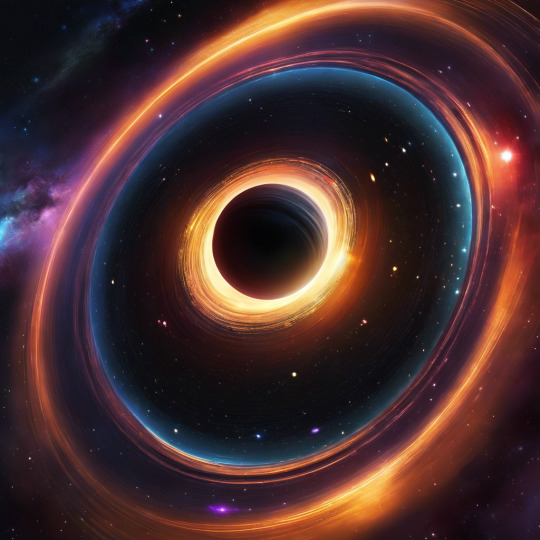Don't wanna be here? Send us removal request.
Text
The Mysteries of Black Holes: Nature's Enigmatic Giants
**Introduction:**
Black holes have captivated the imagination of scientists and enthusiasts alike for decades. These cosmic wonders are not just the stuff of science fiction; they are real, and they play a crucial role in the universe's structure and evolution. Let's dive into the fascinating world of black holes and unravel some of their mysteries!
**What is a Black Hole?**
At its core, a black hole is a region in space where the gravitational pull is so strong that nothing, not even light, can escape from it. This phenomenon occurs when a massive star exhausts its nuclear fuel and collapses under its own gravity. The boundary surrounding a black hole is known as the event horizon, marking the point of no return for anything that ventures too close.
**Types of Black Holes:**
1. **Stellar Black Holes:** Formed from the remnants of massive stars after a supernova explosion. They typically have masses ranging from about 3 to several tens of solar masses.
2. **Supermassive Black Holes:** Found at the centers of galaxies, including our Milky Way, these giants can have masses equivalent to millions or even billions of suns. Their formation is still a subject of research, but they likely grew over time by accumulating mass from surrounding stars and gas.
3. **Intermediate Black Holes:** These are less understood and thought to exist between stellar and supermassive black holes, with masses ranging from hundreds to thousands of solar masses.
4. **Primordial Black Holes:** Hypothetical black holes that could have formed soon after the Big Bang, potentially with a wide range of masses.
**The Role of Black Holes in the Universe:**
Black holes are not just cosmic vacuum cleaners; they influence galaxy formation and evolution. Their immense gravitational pull can affect the motion of stars and gas in their vicinity, leading to the formation of intricate structures in galaxies. Additionally, the study of black holes helps scientists test the laws of physics under extreme conditions, offering insights into the fabric of spacetime.
**Recent Discoveries:**
With advancements in technology, astronomers have made significant strides in observing black holes. The Event Horizon Telescope made headlines in 2019 by capturing the first-ever image of a black hole's event horizon in the galaxy M87. This groundbreaking achievement has opened new avenues for research and a deeper understanding of these cosmic giants.
Conclusion:

Black holes remain one of the most intriguing and complex phenomena in astrophysics. As we continue to explore the cosmos, who knows what other secrets these enigmatic giants may reveal? Stay curious, and keep looking up at the stars!
Hashtags:#BlackHoles #Astrophysics #CosmicWonders #SpaceExploration #ScienceBlog
1 note
·
View note